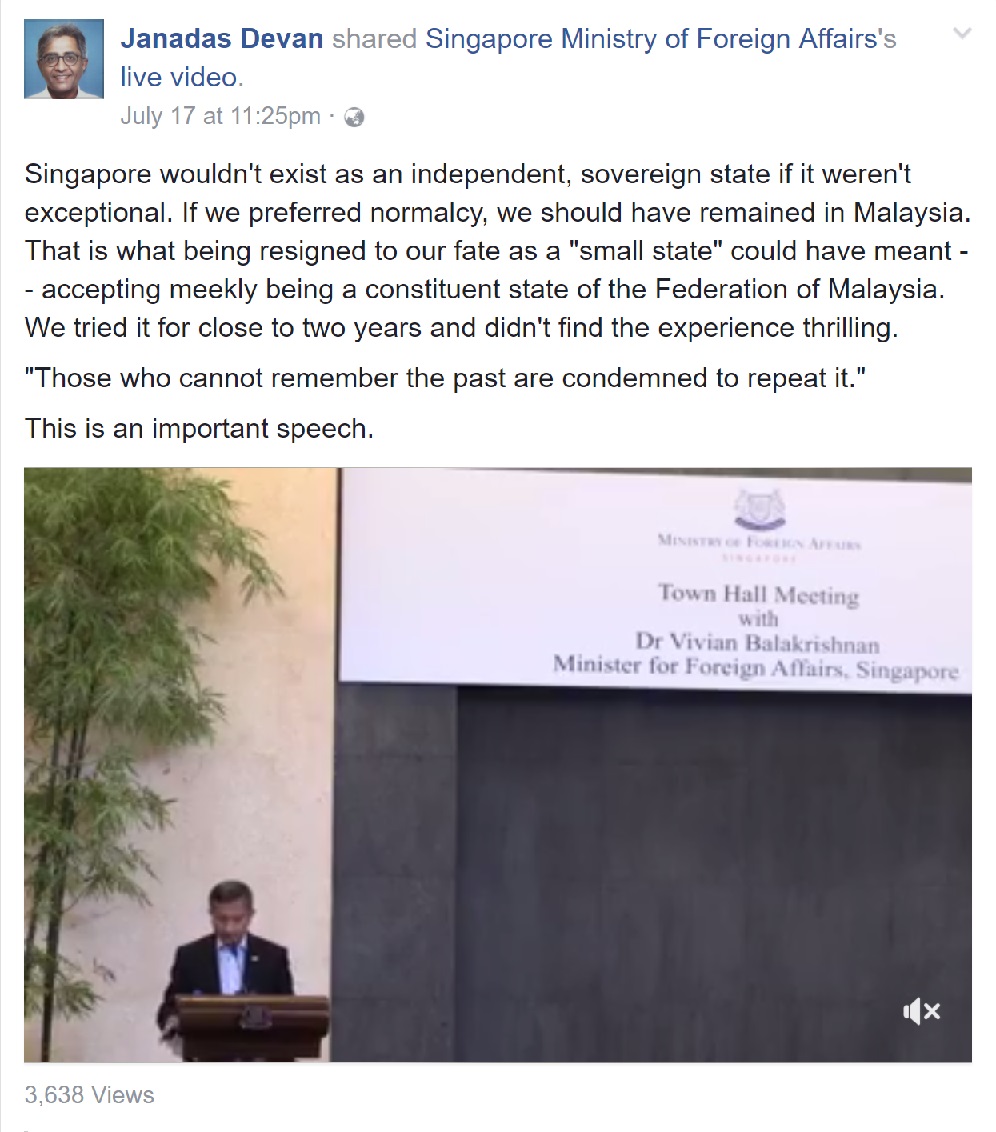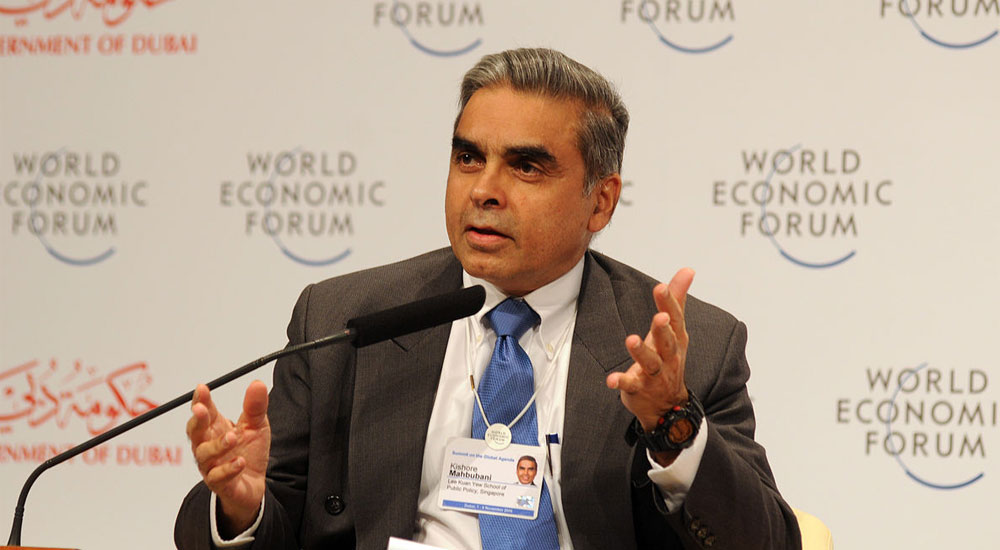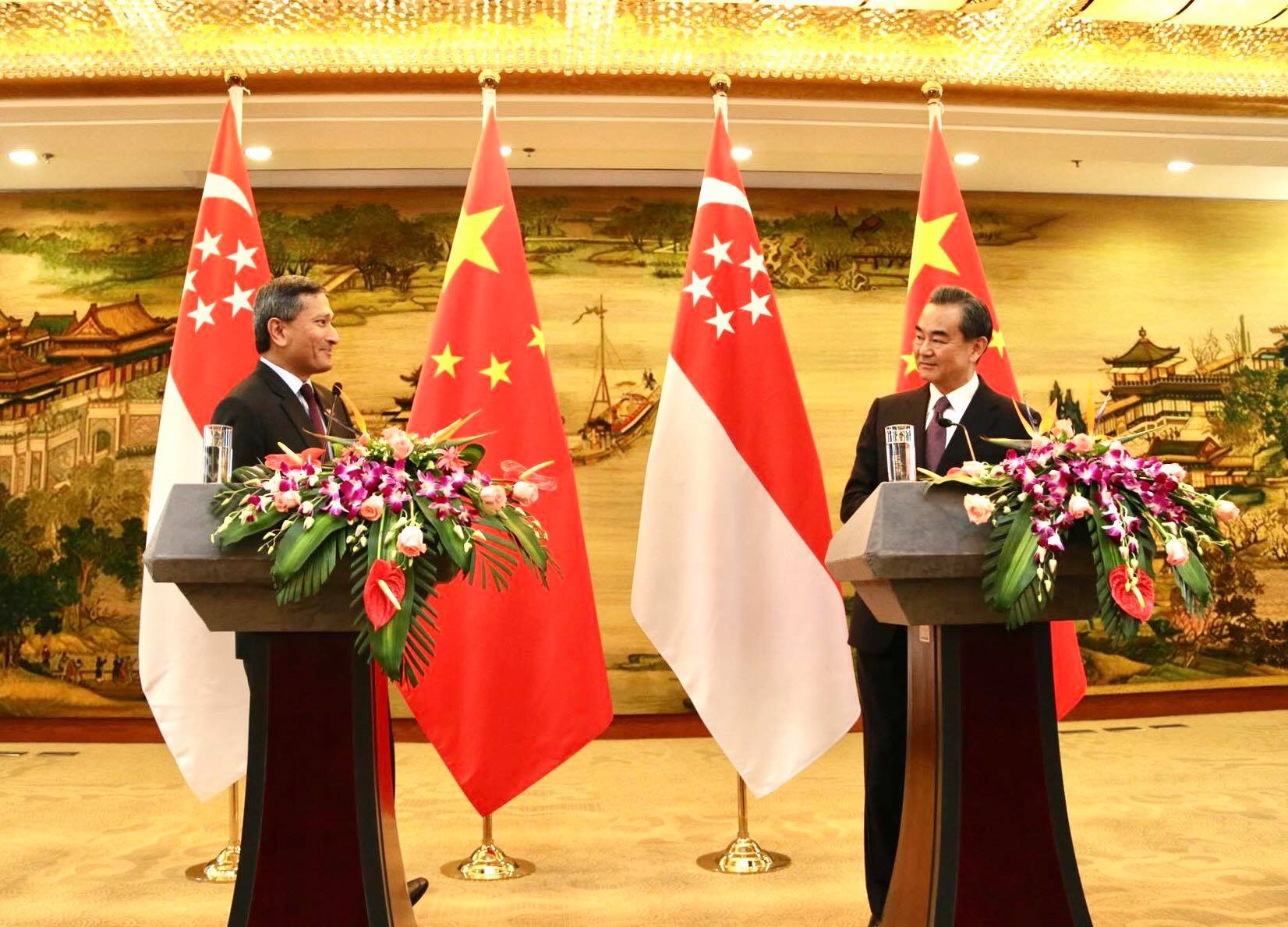Interested to join the prestigious Singapore's Foreign Service?
In that case, you have to read this important 25-minute speech delivered by Minister for Foreign Affairs Vivian Balakrishnan on Singapore's diplomacy, past and present.
Speaking to his colleagues at the Ministry of Foreign Affairs Townhall (townhall? we should use the less pretentious word like meeting in the civil service) on July 17, Vivian reminded foreign service officers, SAF officers, senior civil servants of the five "core principles" of Singapore's foreign policy such as to "protect Singapore's independence and sovereignty" and to "expand opportunities" for Singaporeans.
How do we know it's important?Temasek Holdings CEO Ho Ching shared it.
And because Chief of Government Communications Janadas Devan said so. Source: Janadas Devan Facebook.
Source: Janadas Devan Facebook.
So what are the five core principles of Singapore's foreign policy?
1. Singapore needs to be a successful economy; have stable politics and have a united society:
If not, Singapore would be completely irrelevant. Singapore only merits attention if it is successful and "are represented by smart, honest, serious and constructive diplomats".
2. Singapore must not become a vassal state:
This means Singapore must be prepared to defend our way of life and that we cannot be bought or bullied.
3. Singapore aims to be a friend to all, but an enemy of none:
Singapore is a strong advocate for peace and stability in Southeast Asia. With the superpowers and other regional powers, Singapore's aim is to expand our political and economic relationships, so that Singapore will be relevant to them.
These relations must be based on mutual respect for each other’s sovereignty and the equality of nation states, regardless of size. Diplomacy is not just about having “friendly” relations at all costs. If Singapore's national interests are compromised, Singapore needs to state our position in a firm and principled manner.
4. Singapore must promote a global world order governed by the rule of law and international norms:
Bigger powers will still have more influence and say, but they do not get a free pass to do as they please. In exchange, they benefit from an orderly global environment, and do not have to resort to force or arms in order to get their way.
Singapore must be clear-minded about Singapore’s long-term interests, and have the gumption to make our foreign policy decisions accordingly.
5) Singapore must be a credible and consistent partner:
Singapore's views are taken seriously because countries know that we always take a long term constructive view of the issues.
Because of our credibility, Singapore has been able to play a constructive role in international affairs, at ASEAN and at the United Nations (Singapore helped establish the Forum of Small States and is invited regularly to attend G20 even though it is not the the 20th largest economy in the world).
Why did Vivian give this speech?

It is likely in response to The Straits Times commentary on July 1 by Kishore Mahbubani, dean of the Lee Kuan Yew School of Public Policy. The commentary was published on the weekend before the parliamentary debate on Oxley Road.
Kishore suggested that "small states should behave like small states", and exercise discretion and restraint "in commenting on matters involving great powers".
This was immediately rebutted by Ambassador-at-large Bilahari Kausikan who argued that Singapore would be signalling that its leaders are pushovers if they are cowed by great powers.
It's all Greek to us
How can we be sure that Vivian was responding to Kishore's comment?
Because both Vivian and Kishore were quoting Greek philosophers.
Heard of "Thucydides’ trap"? It is is used to explain the likelihood of conflict between a rising power (like China) and a currently dominant one (like US).
When Kishore quoted Thucydides and the war between Athens and Sparta in the commentary, he was probably influenced by it.
Curiously, the Foreign Minister went even deeper into Greek history than Kishore when he mentioned about the consequences of appeasement for Singapore:
"During the Peloponnesian War, the Athenians were warned of the consequences they would suffer were they to give in to initial Spartan demands. Greek statesman Pericles told his fellow Athenians that if they were frightened into obedience by the initial demands of the Spartans in order to avoid war, then they would instantly have to meet a greater demand.
Actually, contained in the Spartans’ demand was actually a test of the Athenians’ resolve. And if they give in once, they would have to give in again, and ultimately they would be enslaved. On the other hand, a firm refusal would make the Spartans clearly understand that they must treat the Athenians more as equals."
Looks like Vivian managed to out-Greek Kishore.
Since it's all Greek to us, let's make things worse by quoting a Greek poet too:
"Even in our sleep, pain which cannot forget falls drop by drop upon the heart, until in our own despair, against our will, comes wisdom through the awful grace of God." - Aeschylus.
Read Vivian's full speech here.
Here are totally unrelated but equally interesting articles:
4 real life versions of comic book superpowers you used to read about in your childhood
Top photo from Vivian Balakrishnan Facebook page.
If you like what you read, follow us on Facebook, Instagram, Twitter and Telegram to get the latest updates.
